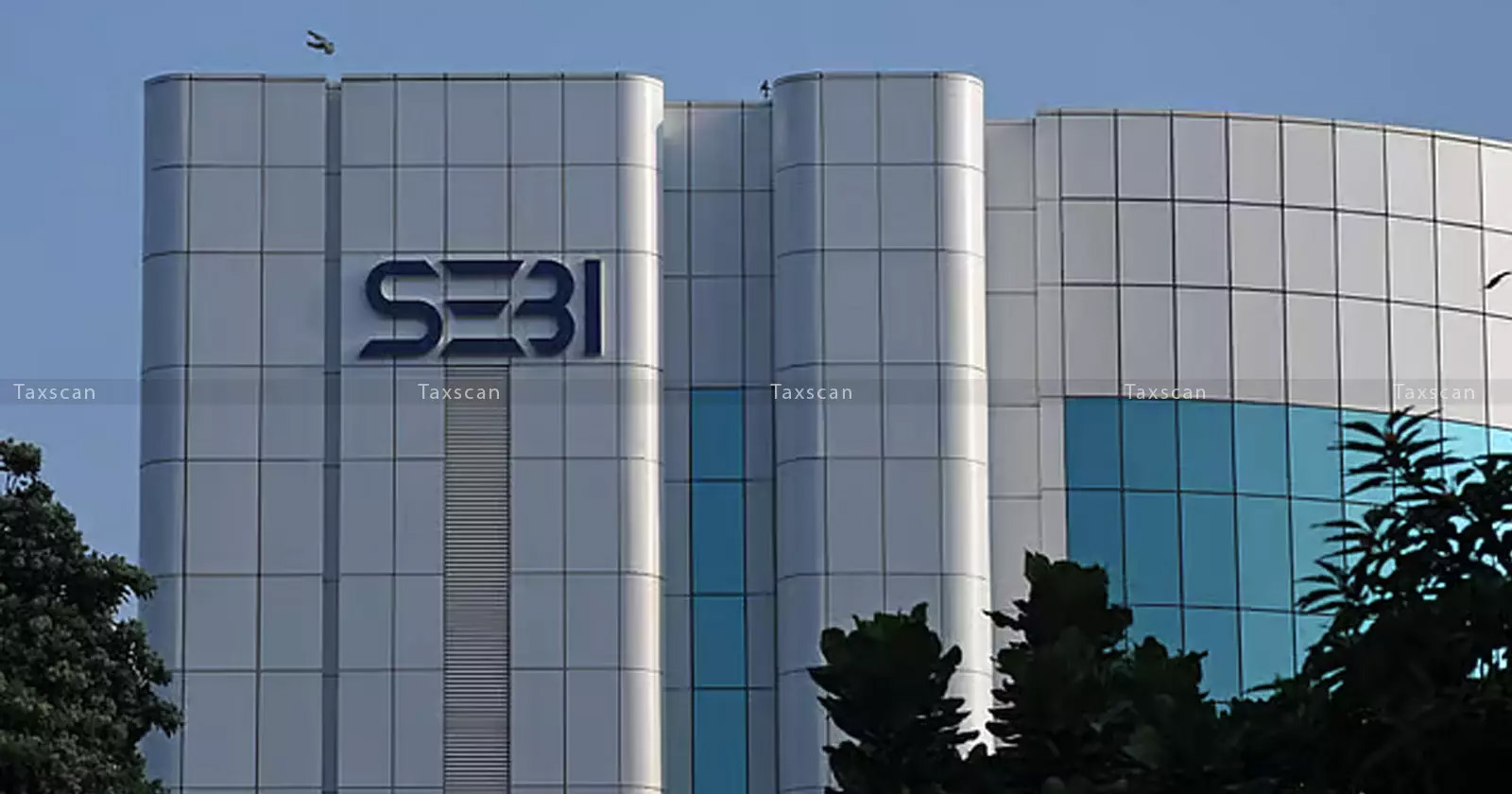Madras HC Dismisses writ petition against SEBI on availability of remedy u/s 15T of SEBI Act [Read Order]
The writ petition is disposed of by permitting the petitioner to file an appeal under Section 15T of the SEBI Act before the Securities Appellate Tribunal within a period of two weeks
![Madras HC Dismisses writ petition against SEBI on availability of remedy u/s 15T of SEBI Act [Read Order] Madras HC Dismisses writ petition against SEBI on availability of remedy u/s 15T of SEBI Act [Read Order]](https://images.taxscan.in/h-upload/2025/07/04/2059012-madras-hc-dismisses-writ-petition-against-sebi-madras-hc-taxscan.webp)
In a recent case, the Madras High Court dismissed the writ petition against the Securities and Exchange Board of India (SEBI) on availability of remedy under section 15 T of the SEBI Act , 1992.
SAS Cityscapes Pvt.Ltd, the petitioner, purchased the subject property through a registered sale deed dated 01.02.2019 registered as document No.108 of 2019. The petitioner claimed to be a bonafide purchaser for value. The petitioner also entered into a sale agreement dated 18.02.2019 with the 2nd respondent, and the same was registered as document Nos.108 to 111 of 2019.
On 14.05.2019, a recovery certificate was issued by the 1st respondent against the 2nd respondent attaching all those properties purchased by the petitioner. Thereafter, a show cause notice dated 04.10.2019 came to be issued by the 1st respondent to the petitioner calling upon the petitioner to give the explanation regarding the transactions that took place with the 2nd respondent.
The petitioner also gave a reply to the show cause notice dated 18.11.2019. Thereafter, hearing notice was issued by the 1st respondent to the petitioner and the petitioner submitted the relevant documents and reply for the hearing notice before the 1st respondent. Even before the conclusion of the proceedings, notice of sale for e-auction was issued by the 1st respondent and the same was put to challenge in WP No.11057 of 2020 by the petitioner.
Comprehensive Guide of Law and Procedure for Filing of Income Tax Appeals, Click Here
 Also Read:SEBI cannot be compelled to Hand over Documents already in Custody of Accused: Calcutta HC Allows Revision Application of SEBI [Read Order]
Also Read:SEBI cannot be compelled to Hand over Documents already in Custody of Accused: Calcutta HC Allows Revision Application of SEBI [Read Order]
The first respondent, the SEBI has questioned the transaction that took place between the petitioner and the 2nd respondent and according to the 1st respondent, the petitioner is not a bonafide purchaser and that the sale deeds and the sale agreements are sham and nominal documents and such a transaction was entered into only to frustrate the SEBI from recovering the dues from the 2nd respondent.
The 1st respondent has also taken a stand that the alienation itself is void in view of the fact that service of notice of demand was issued to the 2nd respondent on 10.09.2018 and it was received on 12.09.2018 and 14.09.2018 respectively and thereafter, the 2nd respondent has executed the sale deeds and the sale agreements. The order of attachment was passed on 14.05.2019 and Rule 16(1) r/w Rule 51 of the II Schedule of the Income Tax Act, 1961, makes it clear that any immovable property that is attached under the schedule shall relate back and take effect from the date of which the notice to pay the arrears was issued and served upon the defaulter.
Since the attachment takes effect from 10.09.2018, the 1st respondent has taken a stand that the transaction itself is void. The 1st respondent has also questioned the maintainability of this writ petition on the ground that there is an alternative remedy available to the petitioner to file an appeal.
The petitioner submitted that inspite of the availability of an alternative remedy by way of appeal under Section 15T of the Securities and Exchange Board of India Act 1992 ( “SEBI Act”), the Court can always exercise its power and jurisdiction under Article 226 of Constitution of India. To substantiate the same, the learned counsel relied upon some judgements.
Comprehensive Guide of Law and Procedure for Filing of Income Tax Appeals, Click Here
The 1st respondent while passing the order has given opportunity to the petitioner and has considered the stand taken by the petitioner. Therefore, the order does not suffer from violation of Principles of natural justice. The order cannot be held to be nullity or non-est since the 1st respondent is vested with the jurisdiction and the 1st respondent has given sufficient reasons as to why the stand taken by the petitioner is unsustainable.
The 1st respondent has come to conclusion that the petitioner is not a bonafide purchaser and to arrive at such a conclusion, various reasons have been assigned by the 1st respondent. Apart from that, the 1st respondent has reached a conclusion that the sale deeds and the sale agreements are void in terms of Rule 16(1) r/w Rule 51 of the II Schedule of the Income Tax Act.
A single bench of Justice N. Anand Venkatesh on the ground of availability of an effective and efficacious alternative remedy to the petitioner, this Court is not inclined to exercise its jurisdiction under Article 226 of Constitution of India. Section 15 (T) (1) (a) of the SEBI Act, 1992 provides for an appeal to the Securities Appellate Tribunal and such appeal has to be filed within a period of 45 days and the Tribunal has also been given the power to condone the delay, if any appeal is filed after the expiry of 45 days, if sufficient cause is shown for the delay.
The writ petition is disposed of by permitting the petitioner to file an appeal under Section 15T of the SEBI Act before the Securities Appellate Tribunal within a period of two weeks.
Support our journalism by subscribing to Taxscan premium. Follow us on Telegram for quick updates


